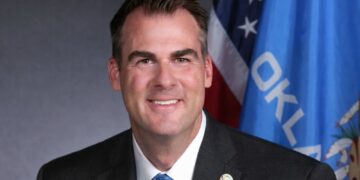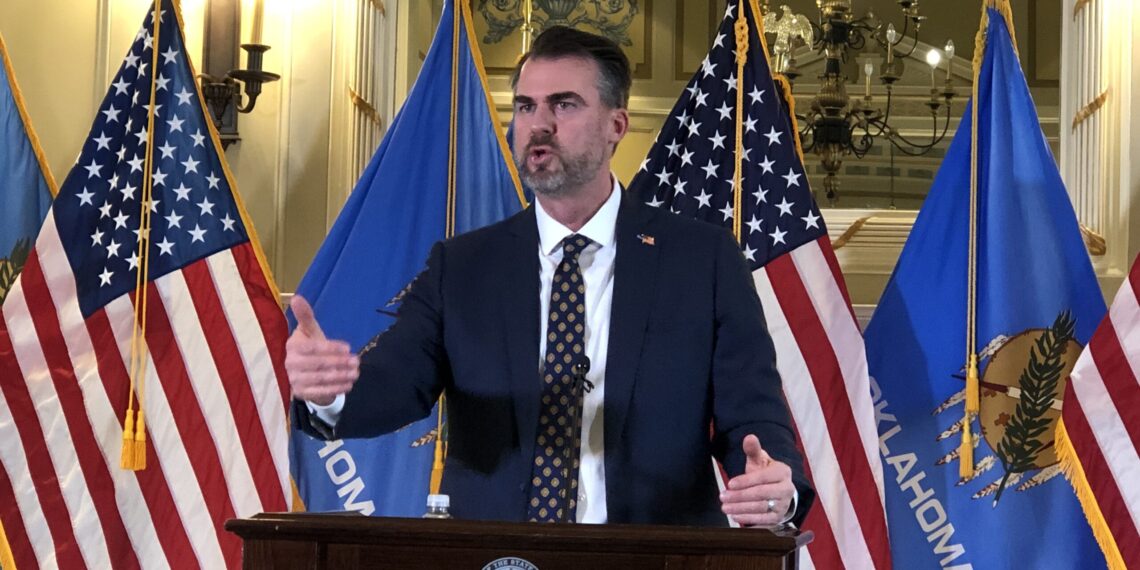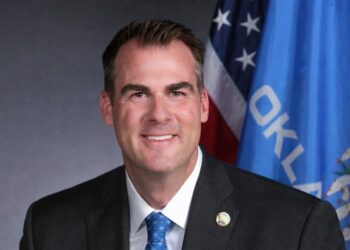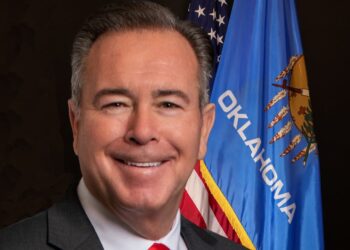OKLAHOMA CITY (OBV) – Gov. Kevin Stitt touted two bills this week, one to eliminate markups on certain goods, and the other to eliminate virtual school days. He also emphasized the need for workforce education and criticized Superintendent Ryan Walters’ plan to check school children’s immigration status.
Stitt held his weekly news conference on Wednesday. He started off his comments with praise for House Bill 1024 and Senate Bill 758.
HB 1024, written by Rep. Steve Bashore, R-Miami, amends the Unfair Sales Act by modifying the “cost to the retailer” definition in existing Oklahoma state law, and removes a mandatory 6 percent markup on certain goods to cover a retailer’s proportionate part of the cost of doing business, according to Stitt.
“I’m looking forward to getting that across the finish line,” Stitt said.
Eliminating the automatic markup allowance may affect how retailers price goods, according to the bill’s summary.
Senate Bill 758, written by Sen. Kristen Thompson, R-Edmond, limits virtual classroom education to incidents of inclement weather, staff shortages, illness and building maintenance issues. Virtual learning can also occur when deemed necessary by school administrators and approved by the State Department of Education.
Stitt criticized virtual education during his State of the State address.
He said some Oklahoma school districts require that students be in the classroom only 148 days a year. He compared that number to Kansas, which requires students be in school 186 days a year.
“We all know that kids learn best when they’re in the classroom,” Stitt said. “It’s just common sense.”
Virtual learning became commonplace across Oklahoma and throughout the nation during the COVID-19 pandemic. Schools went virtual and many office employees worked remotely to minimize coronavirus’ spread.
Stitt said during the news conference that students need to be in the classroom so they can get the education they need to either prepare for college or entry into the workforce upon graduation.
“We all know that having kids in the classrooms with our wonderful teachers is a is a must,” he said.
Stitt was also asked about his removal of three board members from the State Board of Education on Tuesday, as well as Walters’ plan to check children’s immigration status when they are registered for school.
The governor removed Donald Burdick, Kendra Wesson and Katie Quebedeaux from the Board and nominated Ryan Deathredge, Michael Tinney and Chris VanDenhende to fill the seats. Walters responded by announcing a Trump advisory committee and naming two of the ousted board members to the committee.
Stitt removed the board members in response to controversy at the Oklahoma State Department of Education and disappointing scores on the annual National Assessment of Educational Progress (NAEP), according to officials from his office.
“I felt like we needed a fresh set of eyes on that board. It’s really about outcomes. [We’re] here to make sure that our kids are equipped and have the best education possible. When I see our NAEP scores not improving, when I see things that are messed up, wrong or kids being used as political pawns for some political stunt, it’s frustrating,” Stitt said. “I want to make a change. I want to do what I can as governor, to make sure that we are focused on those outcomes regarding those kids, making those kids ready for the workforce and competing in a very competitive world.”
Stitt elaborated on his use of the term political stunt, criticizing Walters for his plan to check school children’s immigration status. Stitt maintained that he is strong on immigration enforcement, but emphasized that children should not be exploited.
“Collecting data on kids and using them as political pawns is not something that helps law enforcement,” Stitt said. “In Oklahoma, our Constitution says we’re going to educate all kids, and I’m going to make sure that every kid feels safe to be educated in the state of Oklahoma.”

















